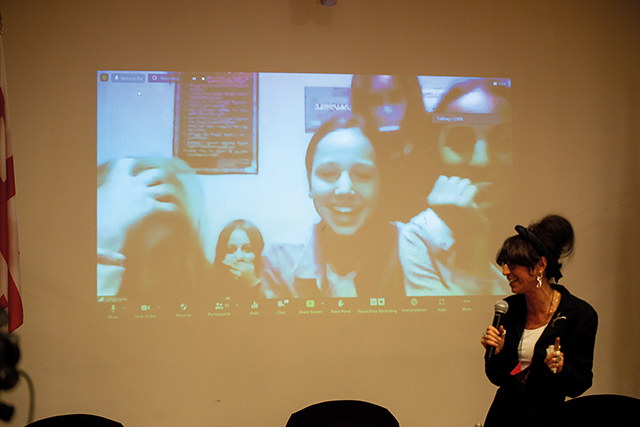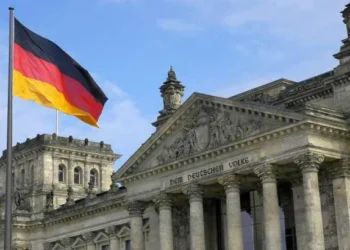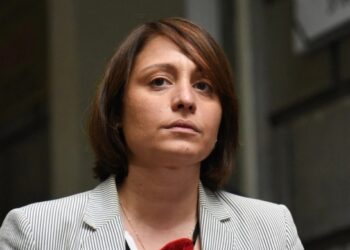On September 28, “Green Consumer Day,” the winners of the nationwide school competition Niko Ketskhoveli School Awards were revealed. The final event hosted by CENN was held at Rooms Hotel in a semi-online format.
All throughout the year the participant schools have been carrying out important social and environmental activities in their communities.
For the past few years the focus has been on the UN Sustainable Development Goals (SDGs).
Finalist schools were identified during semi-finals, which were held online and saw the participation of 150 schools.
“It’s been 7 years since CENN, in cooperation with the Ministry of Environment Protection and Agriculture, and the Ministry of Education, Science, Culture and Sports and the Parliament of Georgia, with financial assistance from the Austrian Development Cooperation, started organizing the annual Niko Ketskhoveli School Award,” said Nana Janashia, CENN Executive Director, told us at the final awards ceremony.
“During this period, we’ve worked with more than 1000 schools. This year, as per tradition, the involvement of schools was very high.
“The main aim of the contest is to promote a sense of solidarity and tolerance towards nature among the youth. This year’s main topic was the UN’s SDGs. Out of 400 schools at the initial stage, 150 most successful schools were selected, and then 31 schools were identified as finalists. Today, three winners were chosen out of these 31. This is not a one-day contest: these schools have been implementing various activities aimed at protecting the environment throughout the whole year, changing the situation for the better in their regions. These young generations bring progress and development to the regions across Georgia, as SDGs not only include protecting the environment, but also other important directions, such as quality education, protecting the rights of minorities, economic improvement, overcoming poverty, etc.

“Apart from the fact that the winners will receive various prizes and recognition from the jury, this is also recognition of their teachers, as the sustainability of this project is very much dependent on teachers. There are also internship opportunities available to these youth, and often, schoolchildren participating in the Niko Ketskhoveli Award become employees of CENN, or receive recommendations from us to be employed in other relevant agencies, which makes us happy and proud,” she noted.
At the final stage of the school contest, the participating schools presented the changes that they had introduced during the year either in big towns or small mountain villages, in response to global challenges.
The jury, comprised of representatives of governmental, international and research organizations, selected 3 winners out of 31 participating schools.
Notably, this year, for the first time, two schools received the third award due to an equal number of points.
The winners were as follows:
First Award: Gvimriani Public School (Kakheti region)
Second Award: Kitskhi Public School (Imereti region);
Third Award: 9th Public School (Rustavi) and 2nd Public School (Sachkhere, Imereti region)
The winners were awarded the following prizes:
First place winner – GEL 8000 grant for the school’s eco club
Second place winner – GEL 6000 grant for the school’s eco club
Third place winners – GEL 4000 grant each for the school’s eco-clubs
Despite the fact that, due to COVID regulations, the event was held in a hybrid format and participant schoolchildren joined it online, via Zoom, their excitement at hearing the winners was a joy to see, giving hope that such progressive minded youth will definitely continue working together to create a better, European and “greener” future for Georgia.

Opening remarks were made by Iuri Nozadze, Deputy Minister of Environmental Protection and Agriculture of Georgia; Lali Kalandadze, Head of the General Education Management and Development Department of the Ministry of Education and Science of Georgia; Thomas Mühlmann, Ambassador of Austria to Georgia; Sabine Machl, UN Resident Coordinator in Georgia; and Mikheil Sokhadze, FAO local office representative.
Apart from important grants prizes for the eco-clubs to implement future projects, the jury members gave recommendations and advice to the contestants for more success in the future.
Furthermore, competition partners announced their chosen eco-clubs and awarded them special prizes.
The chosen eco-clubs of FAO were: 1st place – Letsitskhvaie Public School, and 2nd place – Badiauri Public School. Both schools will be awarded projectors, and Letsitskhvaie Public School eco-club members will be awarded smartphones.
The Ministry of Education and Science named 10 finalist eco-clubs as their nominees: Tbilisi #51 Public School, Ikalto Public School, Dzveli Anaga Public School, Rustavi #9 Public School, Abkhazia #10 Public School, Rukhi Public School, Kitskhi Public School, Ninotsminda #1 Public School, Sachkhere #2 Public School, and Gvimriani Public School.
The top three schools of the second stage of the competition, Tbilisi 51 School, Ikalto and Dzveli Anaga School, will receive computer technology vouchers, while the seven other nominees will receive book vouchers.
Karlo Amirgulashvili, long-standing jury member, revealed the nominated school of the Ministry of Environmental Protection and Agriculture as Ninotsminda #1 Public School. The selected eco-speaker was Esail Igitain, the leader of the Ninotsminda #1 public team, whose prize is the chance to be Minister of Environmental Protection for a day.
The National Forest Agency’s nominee was Dzveli Anaga School, whose eco-club will be awarded a Microscope for the eco-club laboratory.
The Green Award by the Environmental Education center was awarded to Nana Verulashvili, a teacher of the Tbilisi 51 Public School.
The center also revealed its favorite eco-speaker as Shota Zviadadze, the Kitskhi Public School leader. He will participate in a two-month program at the center.
Further, Tbilisi Zoo awarded the following schools educational materials on biodiversity: Chakvinji Public School, Gumbati Public School, Kharagauli #2 Public School, Koreti Public School, Otobaia #1 public school, Kekhijvari Public School, and Lapanaantkari Public School.
In addition, Ninotsminda and Lapanaantkari Public School’s eco clubs will be offered a zoo education tour.
At the end of the awards ceremony, CENN offered its special thanks to its distinguished partners in this important work: Austrian Development Cooperation for their continuous support, and jury members Karlo Amirgulashvili, Head of Biodiversity and Forest Department of the Ministry of Environmental Protection and Agriculture of Georgia (MEPA); Natia Iordanishvili, Deputy Head at National Forestry Agency; Irma Bochorishvili, Head of Research and Education Department Tbilisi Zoo; Tamar Aladasvhili, Director of Environmental Education and Information Center; Marine Mosulishvili, Professor, Iliauni State University; Tamta Grigolia, General Education Management and Development Department, MES; and Nino Gogokhia – Representative of Georgian Youth at the UN.
The school environmental contest Niko Ketskhoveli School Awards has been organized by CENN since 2015 with financial contribution from the Austrian Development Cooperation (ADC).
Niko Ketskhoveli was distinguished Georgian botanist, writer and public figure, one of the founders of the Botanical School in Georgia, Doctor of Biological Sciences, Professor, one of the founders and academician of the Georgian National Academy of Sciences, and two-time winner of the Shota Rustaveli National Award. By establishing an award in his name, CENN aimed at impressing and encouraging future generations with his valuable work, which was successfully achieved.
“The Ketskhoveli Awards unite us!” was the main slogan heard at the 2021 awards ceremony, which also well describes the main principle of the entire contest.
Preparation for Niko Ketskhoveli Awards 2022 has already started, with the main topic “Green Economy,” and the contest awaits new participants with innovative ideas on this important issue.
By Ana Dumbadze














